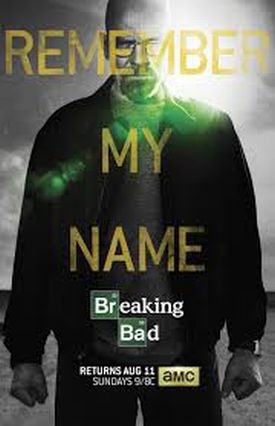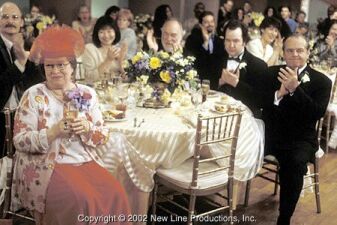Ken Burns’s War
From The New Criterion“The War”? Which war? What about the war? The grandiose titles of Ken Burns’s multi-part and seemingly interminable documentaries-cum-marketing opportunities — “The Civil War”, “The West”, “Baseball”, “Jazz” — all irritatingly raise similar questions by their self-important refusal to qualify themselves except by reference to the name of their author, the celebrity documentary-maker Ken Burns. That name is the answer to all the questions raised by the title. Oh, the Ken Burns war. Viewers may or may not have been aware before its seven two- or two-and-a-half-hour installments aired on PBS in September and October that there had been an armed conflict between the years of 1939 and 1945, a conflict which in America is usually called World War II, but Ken’s war was not that war. Most of the fighting and the suffering that took place in the historical war was not done by Americans, but we hear very little of that. All of it was determined by the mind and character of its political and military leaders, but we hear very little of them either. Few people at the time thought the war had anything much to do with race relations in America, but Ken thinks it had a lot to do with them.
In other words, like the Civil War and the rest, World War II has been Burnsified. This is Ken Burns’s “War” — as the name above the title implies — rather than the war, the war as history knew it before he put the Burns brand on it. This brand, for those who have wisely avoided his lugubrious productions, is marked by an unremitting emotional and musical plangency. Surviving veterans mainly from four small to mid-sized American towns or cities — Waterbury, Connecticut, Mobile, Alabama, Luverne, Minnesota and Sacramento, California — their families and acquaintances are gently coaxed into sharing their retrospective feelings with Mr Burns’s camera, often with a catch in the throat or a tear in the eye, and then the film cuts away to contemporary combat or home-front footage with what someone has decided is an appropriate and tasteful musical accompaniment. Original music, heavily blues-oriented, is composed and performed by Winton Marsalis, and a blatantly anachronistic, weepy but inspirational pop ballad called “American Anthem” was specially composed for the film by Gene Scheer and is sung in it by Norah Jones. There is also a wealth of classical and popular music in a mix recording of evocative tunes which, along with the original music, is available in a four disc set on Amazon for $39.97 or, bundled with the DVDs of all 15 hours of the series itself, for $118.96.
Most of the popular music is contemporary Swing or Big Band numbers — to give us that period feel — while the classical ranges widely over romantic and modern selections chosen for their emotional intensity in the former case and their other-worldly echoes in the latter. Thus, we get rather a lot of Elgar’s “Nimrod” from the Enigma Variations or the adagio from Dvorak’s Cello Concerto when simple elegy seems to be called for and a bit of Ligeti or Arvo Pärt, or Messiaen’s Quatuor pour la fin du temps when the apocalyptic nature of the material demands something a bit stronger and more despairing. There is also a motet by Josquin des Prez for the parts where the monastery at Monte Cassino or its ruins are on the screen. Characteristically, pieces of both the classical and the popular kind make their first appearances in their original form and then in a piano transcription slowed down to a dirge-like pace for use as background to the combat footage — along with added sounds of explosions and gunfire and shouts and groans meant to be those of the combatants.
In other words, having told us how his subjects feel, Ken then feels the need to tell us how he feels and therefore how we should feel too. The Burnsian emotional life was stressed not only in the music but also in the publicity material and interviews. “‘The Civil War’ minted his reputation, wrote Brendan Miniter in The Wall Street Journal, “but spending years poring over individual, tragic stories of the millions of people caught up in the bloody and protracted military conflict left him emotionally spent.” Did it, indeed? Poor man! Likewise, Gary Strauss in USA Today: “Burns, who calls himself an emotional archaeologist, says he was touched by the stories told by veterans and loved ones who cried over buddies lost and the horrors they experienced. Their impact lingers.” And he recounts the story, doubtless recounted to him by Mr Burns himself, of how the latter broke down in tears in learning of the death of one of his interviewees in July. This sad event — the breaking down, not the death — happened as he was driving to Luverne, Minnesota, by the way. In case you’re interested. “It hurts because they were so generous,” Mr Burns told Mr Strauss.
Ken is thus himself an emblematic sufferer on behalf of those “millions of people” whose stories he pored over. He takes upon his own shoulders the lingering agonies of “The War’s” surviving victims, about whom he is so solicitous in his film. Call this “emotional archaeology” if you like — though I would have thought the term an oxymoron, since archaeology concerns itself solely with the bits of people that are left when the emotions, along with the soft tissues, are long gone — but it certainly isn’t history. “‘The War’ intentionally omitted the typical World War II discourses on top commanders, strategy and weapons that dominate most period pieces,” writes Mr Strauss. This is because “the producers wanted intimate, personal stories.” But without the strategic and political context, the intimate, personal stories take on an importance that they did not have at the time and that is therefore fundamentally distorting. Emotion presented without a hard-headed analysis of the conditions that produced it is really an appeal to voyeurism and self-pity.
It’s also, inevitably, anti-war in tendency if not in avowed intention. According to Mr Miniter in the Wall Street Journal, “‘The War’ isn’t aimed as a commentary on the global war on terror or the war in Iraq — production on it began before 9/11 — but Mr. Burns told me that he thinks the timing is good. ‘It agitates the questions about war’ that should arise from viewing the reality that is armed human conflict.” He told USA Today that the fact that, as most of the interviews had been conducted before the invasion of Iraq, “there’s not a political bone in this film. . . It’s about the reality of war.” Now there’s a revealing disjunction for you. For Ken Burns, politics isn’t reality. Only emotion is real. His focusing on human suffering and slighting the context which gives it meaning is also a way of denying the realities that elsewhere make him acknowledge that World War II was “a necessary war.” He agrees with that opinion in the mouth of one of his interviewees, but he provides the viewer with little or no foundation for it in the midst of an emotional outpouring which makes it all look horribly unnecessary.
All wars are unnecessary when looked at in hindsight — a fact which the Democratic party has been making the most of for four years now. If this or that hadn’t been done then they wouldn’t have happened, which means that, had we the godlike power of omniscience, they could have been prevented. From there it is a short step — at least for those accustomed as so many of our media poets are, to looking at the world sub specie aeternitatis.— to say that they should have been prevented. And to look for someone to blame for the fact that they were not. Much of the pity and the sorrow, the sense of tragedy and waste that he is constantly trying so powerfully to evoke would be neutralized if he truly allowed us to think that the war were a necessary one. What war does to a man is the primary concern of those who have come to think that war is optional.
Thus a particularly portentous citation in “The War” comes from the diary of Eugene Sledge of Mobile, author of With the Old Breed at Peleliu and Okinawa, whose experiences as a Marine on Peleliu taught him that “Time had no meaning; life had no meaning. The fierce struggle eroded the thin veneer of civilization and made savages of us all.” Doubtless young Mr Sledge really did feel this, but he needn’t have gone to war to learn it. The idea was in the cultural air of the interwar period and could have been gleaned from any of a number of advanced and invariably anti-war literary works. It has since that time become such a commonplace of progressive thinking that I find it just a little hard to believe that Ken Burns really regards it as the profundity he presents it as here. But it does advance the anti-war ambiance.
Moreover, Mr Burns presents the war through the lens of contemporary pre-occupations with race and ethnicity, the Holocaust, the internment of Japanese-Americans and so forth. Like the focus on emotion, this is a way of looking into the past and seeing only ourselves. To spend our time alternately raking up people’s retrospective feelings and scolding their contemporaries for not having the exquisite social consciences we have acquired over the last 40 years is nothing but a form of self-congratulation — the characteristic mode of liberal thinking in our time. It’s easy to say now, if not necessarily quite to believe it, that it was a necessary war, but it is also necessary to answer the question why people thought it was necessary at the time — which had very little to do with the reasons why we think so now.
In other words, “The War” is presented to us as if people at the time thought they were fighting for the reasons why, in retrospect, we think they should have been fighting — partly because they themselves now think, being as much creatures of their culture as the rest of us, that they should have been fighting for these reasons. There is a kind of silent conspiracy between the film-makers and their interviewees to suggest that all that sacrifice was for the sake of more liberal racial attitudes or to oppose the Holocaust. But it wasn’t. Nobody outside of Germany knew about the Holocaust at the time. What was it for, then? The question doesn’t seem to interest Ken Burns very much.”The greatest cataclysm in history grew out of ancient and ordinary human emotions,” his voiceover narrator intones: “anger and arrogance and bigotry, victimhood and the lust for power.” Well, that’s that sorted out then.
The screenwriter, Geoffrey Ward, says that this is “war as people experienced it,” but that’s that’s precisely wrong. It’s war as people now want to remember it, both morally and emotionally, even though they felt very differently at the time. Glimpses of the war as people experienced it are occasionally afforded by clips from contemporary newsreels and popular films such as Flying Tigers with John Wayne. In the Burnsian context, these are automatically and invariably provided with an ironic commentary. Their unfailingly upbeat, resolute, confident tone is jarring and so is made to look slightly tasteless by the funereal one so carefully cultivated by Ken, “The Undertaker,” Burns. But if we can get over our feelings of superiority and condescension to them, these snippets might remind us that there is another way of looking at things, and one which has room for more kinds of feelings than the three kinds — first empathetic sorrow, then moral indignation and finally self-congratulation for feeling the other two — that Mr Burns seems comfortable with.
Our invitation to feel these things with him is also an invitation to a share in the celebrity conferred by Mr Burns’s cameras on those who have been told that a world-historical event ultimately boils down to their feelings about it. No wonder, then, that Hispanics threatened a boycott of the film. Hey! Don’t our feelings deserve the celeb treatment too? And so to the originally-finished product there was added a half hour segment on a couple of Mexican-American veterans and, as for good measure, another half hour on a Crow Indian named Joseph Medicine-Crow who became perhaps the last war chief of the Crow nation by performing the four tasks necessary for that status by touching a living enemy, taking an enemy’s weapon, stealing an enemy’s horse — quite by chance he had a chance to steal a number of them — and leading a war party. He sings for us, in Crow, the song of celebration he sang while riding away on his enemy’s horse. Where else are you going to see that?
The film’s condescension to the past is both national and personal. Its relentless moralizing about the racial attitudes of a by-gone society has an echo in the frequent stress on the ignorance and innocence of those who went to war. That was the old me. How stupid and na ve I was! At one point, Ken actually adds to his roster of interviewees a man from Sacramento who didn’t even take part in the war but who, as a child at the time, used to play war with his friends and now thinks it worth our noticing that “the way we played war, nobody ever died” — as if, perhaps, somebody should have died for the sake of verisimilitude. As if we needed to be told by one of the still tough-looking Alabamians that “War is not a pleasant activity.” Perhaps we do, but that does not make the sentiment any less of a banality. Paul Fussell, though he doesn’t hail from any of the four towns on the Burns tour, gets as much air-time as any of those who do because he is particularly keen on this aspect of things, remembering his own innocence and ignorance and making it the template for everyone’s experience of war.
At least Paul Fussell recognizes the truth of the dictum, attributed by him to General Patton but originally belonging to Helmuth von Moltke the elder, that “plans survive only until the first shot is fired.” In other words, war is always a succession of blunders and attempts to recover from blunders. But Ken Burns affects to be as surprised by this as he is by the fact that war is not a pleasant activity. Insofar as he does turn his attention away from emotion and towards matters of strategy and tactics, it is almost invariably to mention that this or that battle involved fatal and often criminal mistakes on the part of the generals, admirals or politicians. Seldom if ever are the American commanders congratulated on their successes; invariably they are condemned for their failures. Now what does that remind you of? Like his dwelling on loss and sorrow, this is all part of a concerted attempt to associate war with horror and futility which can hardly be unrelated to current political and military concerns.
Most of the footage may have been shot before the invasion of Iraq, but it has been edited since then and, I suspect, in the same spirit with which the media since then have tried to turn the war there into a scandal. Their approach to Iraq is marked by the same emphasis on the blunders of the commanders and the sufferings of their troops rather than the accomplishments of either. In both cases, the point of this emphasis is to suggest, more or less subtly, that the war was unnecessary and, therefore, that it was the fault of those who could have avoided it and did not. It’s easy to forget, now that Ken Burns and others have taught us how to look at the Second World War, that there was plenty of this kind of blaming going on then too. Rick Atkinson, who has just published his own book on the Italian campaign, does not forget it. In his review of “The War” he notes that Churchill said “the necessary war” that “this war will be known in history as the Unnecessary War” — because of the blunders of the pre-war leaders whose deafness to his own warnings had allowed Hitler to come to power.
There seems to me a better case for blaming the millions of dead in World War II on their failure to be sufficiently belligerent than for blaming the thousands dead in Iraq on George W. Bush’s being excessively so, but in both cases the exercise is merely speculative and subject to the self interest of those in the media or politics who first decide who is to be blamed and then go looking for things to blame them for. In both cases, too, the result of our relaxing somewhat our demands on the past that it should know the things we know, and our indignation about the fact that it doesn’t know them, is likely to be a more rational approach to war and a greater proportionality in the grief we feel for its consequences.
Discover more from James Bowman
Subscribe to get the latest posts to your email.







